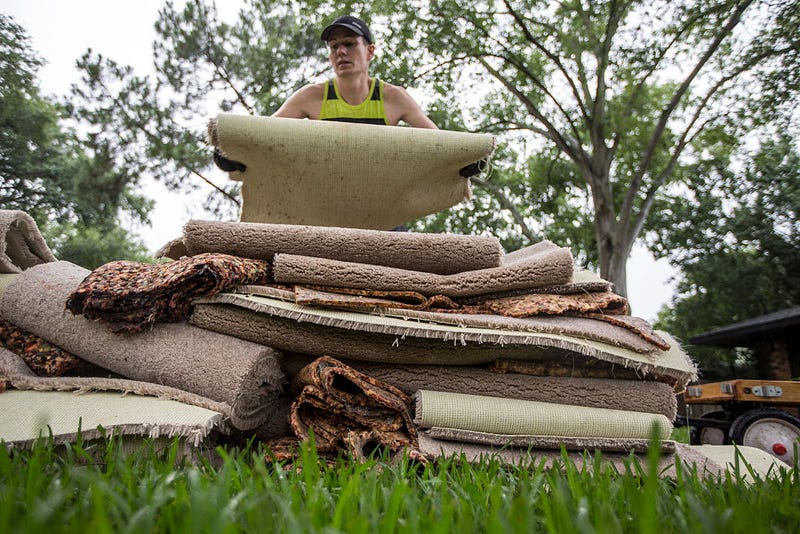
As the cost of home insurance goes up with inflation, there’s a risky new trend growing in the U.S. More and more people are choosing not to insure their homes.
“We hate to say it, but it’s absolutely a true trend,” Guy Williams, president of Gulf Coast Bank and Trust, told WWL’s Newell Normand this week.
Why are people deciding to take a pass on homeowner’s insurance?
“If you don’t have a mortgage, no one requires you to have insurance. And what we’re seeing is, particularly some of our senior citizens are just saying, you know, ‘I just can’t afford the flood insurance, can’t afford the fire and casualty,’ and they're deciding to just take it, take the risk that something disastrous could happen.”
That’s been a particularly risky choice this summer. In the U.S. alone, there’s been thick smoke from Canadian wildfires blanketing Northern cities, massive wildfires that decimated the typically idyllic island of Maui and a “hurriquake” that hit California. There have also been wildfires in Louisiana and there’s a hurricane headed to Florida.
However, according to a Wall Street Journal report, 12% of homeowners in the U.S. don’t purchase homeowners’ insurance. Of those without insurance, around half have household incomes less than $40,000, according to a 2023 survey cited by the outlet.
Data from S&P cited by Bankrate found that, between January 1 and May 18 of last year, home insurance companies were approved for rate increases in nearly every state. Statistics from Bankrate cited by the WSJ indicate prices are up even more this year, with the national average for home insurance based on $250,000 in dwelling coverage at $1,428 annually, up 20% from 2022.
“We understand it, and the tough thing is we have people that really don’t feel like they have an alternative,” Williams explained. “And it’s a very difficult situation. If someone has a mortgage. Banks are required by law to get insurance, but the insurance is only to cover the amount of the mortgage. So, if you have a 50% loan to value, the bank’s going to insure that 50%, but you’ll lose your equity build up. So, it’s a tough trend.”
What are the ramifications of saying “no” to getting a home insurance policy?
“The risks of forgoing a policy are significant,” said the Wall Street Journal. “When you don’t have insurance and your home is destroyed by fire, you don’t just lose your house and its contents. You might also have to pay for removing your home’s remains as well as the costs to rebuild it.”
Yet, Bankrate has also found that many home insurance companies have stopped selling new policies to homeowners in Florida, due to the high risk of severe storms and a state-wide issue with insurance fraud. Even wealthy homeowners are skipping insurance in some areas, claiming they would rather rebuild or move if a disaster strikes, said the WSJ.
Williams said that Walmart is an example of this in the corporate world.
“What Walmart realizes in any given year, a small handful of buildings will be damaged… what Walmart was paying is basically their premium, [it] covered the cost of the rebuilding, plus a profit to the insurance company. And Walmart realized: we couldn’t afford to rebuild our stores. They’re widely scattered. It doesn’t matter to us if one or two burn in any given year, and we won’t have to deal with adjusters. We’ll just start and rebuild as we please.”
However, most homeowners aren’t able to set aside money to deal with disasters.
“You know, we would encourage folks, if you reach the point where you just don’t have any alternative, at least save the amount you were paying in your previous premium,” Williams said.
He also said that people should not plan on relying on help from FEMA. Williams even said he believes the agency should be held responsible for negligent homicide related to Hurricane Katrina.
“You know, insurance has gotten to be a big mess,” he said. “And it’s unfortunate because with construction costs up, it really is more expensive to rebuild a house. So someone might say, well, my house isn’t worth that much.
It may not be, but the damage is still going to be very expensive to repair.
And that presents a challenge.”
Listen here to Williams’ full conversation with Normand.


